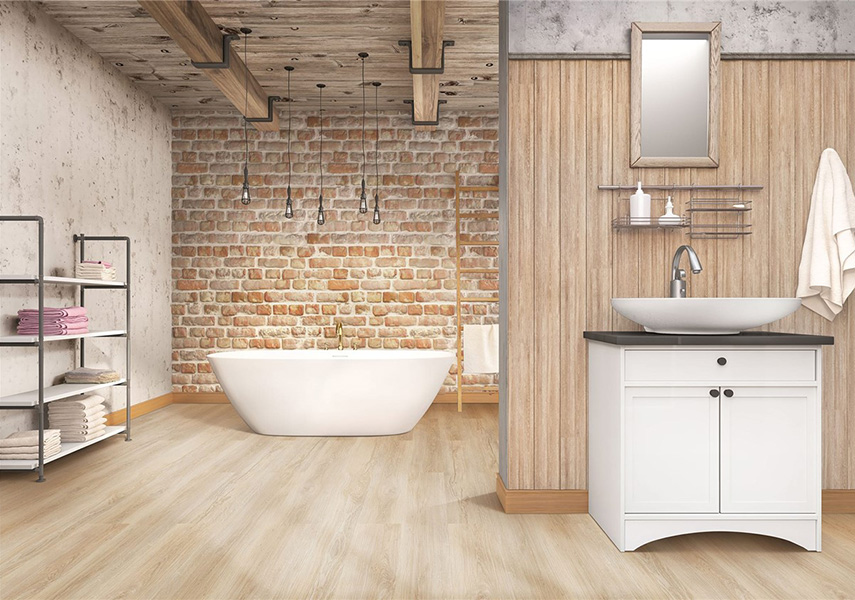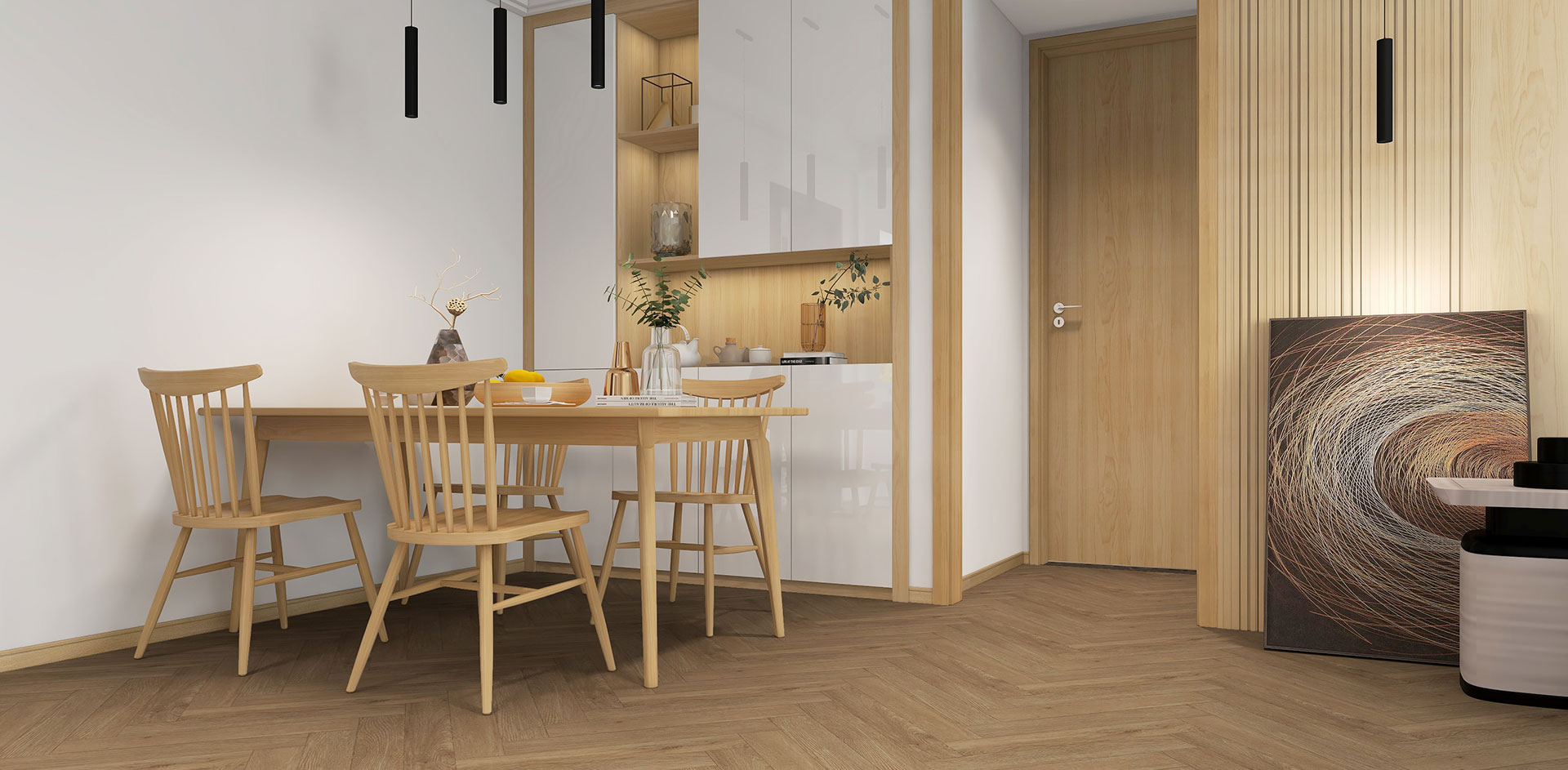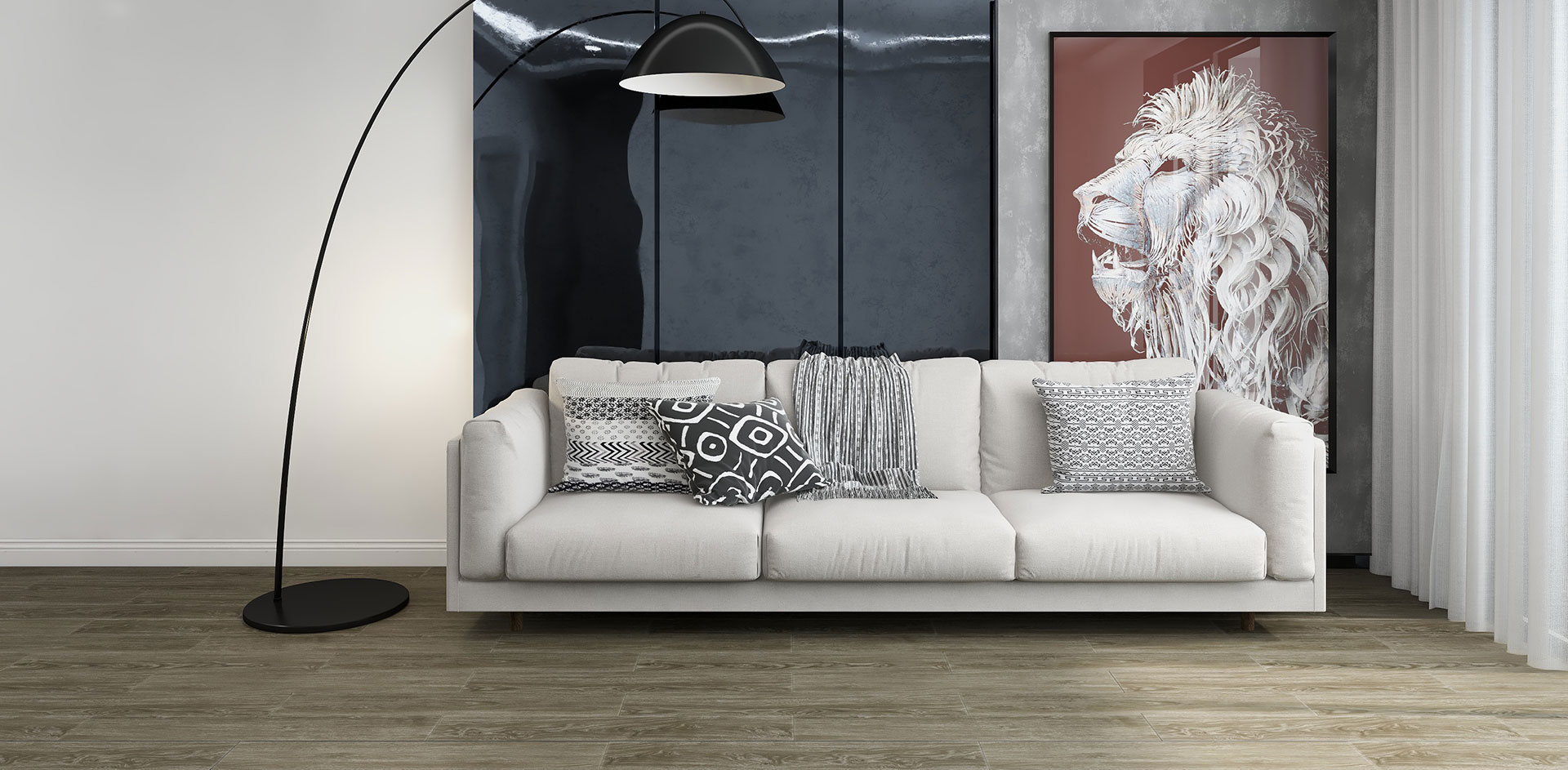Does the Thickness of Vinyl Flooring Matter? Absolutely!
It’s important to differentiate between the thickness of the plank core, the attached underlayment, and the thickness of its protective coating.

The Wear Layer of Vinyl Plank
When it comes to the resilience of vinyl plank flooring, the thickness of the wear layer is key. This is the measurement you want to look for first when determining how well your new flooring will hold up under rigorous activity. The number is expressed in mils, which is distinct from millimeters (mm). A mil is a thousandth of an inch, or 0.0254 mm. For reference, a typical credit card is 30 mils thick, or 0.76mm.
Usually, 12 mil is for residential use. 20 mil wear layer—well above the 12 mil standard residential thickness, making it suitable for commercial use. We also have a 28 mil option that's hard-wearing enough for commercial use. Our technicians have found that at 30 mils the wear layer starts to obscure the details of the decor below, so find the right balance for your needs.
The Plank Core
The thickness of the actual plank is what helps to give your floor its sound-reduction properties, sturdiness, and comfortable feel underfoot. Thicker planks might also be beneficial if you need to match the height of adjacent flooring. The best-selling planks are 4mm or 5mm thick, but we also have 6mm, 7mm and even 8mm planks for rooms where you might want more thermal and sound insulation, also maintain floor dimensional stability under extreme climate, or your subfloor isn't as perfect as you'd like. These ultra-thick planks are also great for supporting heavier items.
The Underlayment
It's always a good idea to consider adding underlayment between your subfloor and vinyl planks, especially if you're installing floating floors. Underlayment adds comfort, as well as increased insulation and sound muffling. Our vinyl plank flooring always comes with attached padding, which helps to add cushioning between your feet and your subfloor, of which the thickness is usually 1mm or 1.5mm.
How Thick Should Vinyl Plank Flooring Be?
The thickness of your vinyl flooring should depend primarily on the amount of activity in your space and the weight your floor will have to support. You’ll want a robust wear layer for play areas, entryways, and any areas with lots of foot traffic and, therefore, the potential for scratches and scuffs.
A home office containing heavy furniture and equipment is also a good candidate for thicker planks. If you have chairs, desks, and other items with caster wheels attached, a more substantial wear layer will help prevent damage from all of the rolling. And, of course, commercial spaces would benefit from the wear resistance and stability of thicker vinyl planks.
Additionally, consider thicker planks are a good choice in areas with heavy items occupying them, whereas thinner planks are suited to areas with low traffic. And, because thinner planks usually cost less, they’re a good option for those on a tighter budget.

 English
English Español
Español




